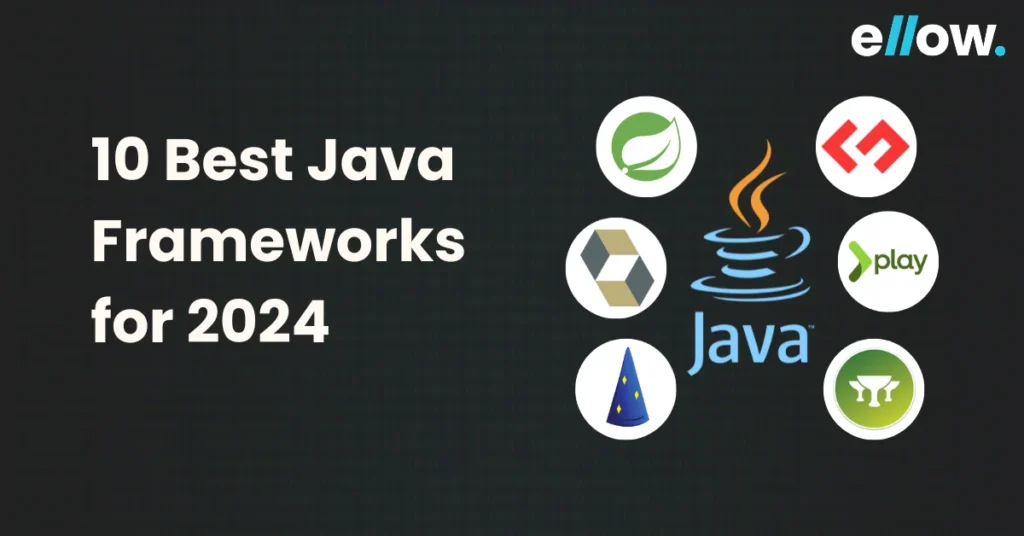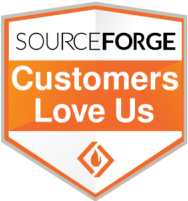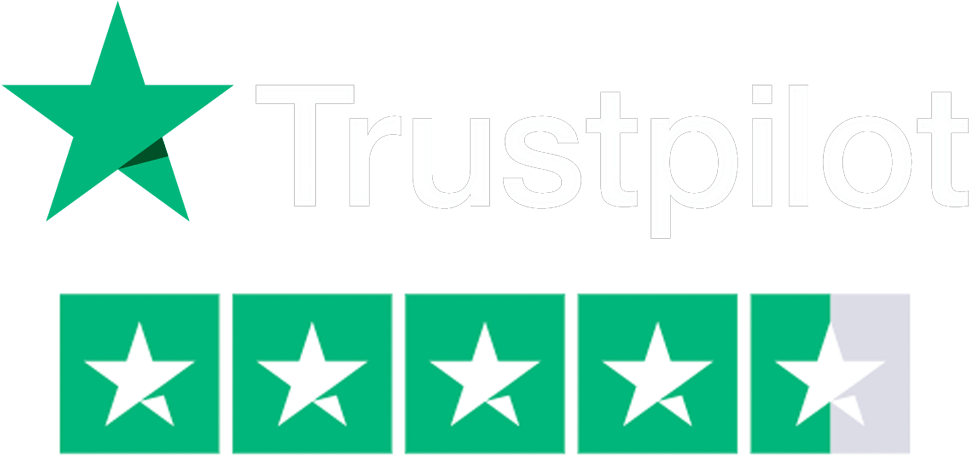A collection of predefined code used by developers to create web apps is called a Java framework. In the era of Java programming, Java frameworks have functions and classes that manage systems, handle input, and support communication with apps.
Importantly, Java frameworks have pre-existing libraries and codes enabling Java developers to develop apps without writing every piece of code from the beginning.
However, picking the relevant Java framework might be a tiresome task. Not to worry, we’ve got your back! In this piece of content, we will explore some top Java frameworks used for performant web development.
What is a Java framework?
Before diving into the main focus of learning about the top Java frameworks, let’s understand what a Java framework is.
Java is a programming platform used by developers to develop the backend of any website or system. To make this development process easier, developers generally use Java frameworks.
These frameworks help in managing the data, organizing it, and ensuring that the client side of the website works accurately. Client-side can be handled using backend technologies as well.
So, when you choose a particular Java framework remember that it is a collection of predefined codes that is used by programmers to build apps on the web. These Java development platforms are also known as APIs (Application Programming Interfaces) or libraries.
They can seamlessly handle core hardware, input, and much more. A top-notch Java development company always prefers to use Java frameworks to build the app without writing every function’s code individually. Now, let’s explore the 10 best Java frameworks for 2024 and the upcoming years.
Top 10 Java frameworks useful in 2024
Let’s explore the list of top Java frameworks for your next Java project.
1# Spring
Spring is a Java web development framework that is open-source and also lightweight. It provides infrastructure support to make Java apps easily. It’s one of the top JEE (Java Enterprise Edition) tools that help programmers make high-performing apps using traditional Java objects.
Here are the best features of Spring:
- Admin features
- Properties files
- Web development
- Type-safe config
- App listeners and events, and many more
Top benefits of using Spring framework for Java development:
- Java Spring framework helps you to make JDBC(Java Database Connectivity) connections easily
- You can use Spring for app testing along with the backward compatibility
- You can deploy web apps without an actual web server
2# Hibernate
Hibernate is not just another ORM (Object Relational Mapper). It is a game-changer for managing database operations in Java programming. Imagine writing minimum code but performing more, it is possible using Hibernate.
It can transform complex database queries into simple, and OOP (Object-oriented programming). For instance, if you are working with Java objects, Hibernate easily maps them in database tables. No more working on long SQL queries and DB intricacies.
The HQL- Hibernate Query Language lets you write database-independent queries in an OOP fashion.
Here are the best features of Hibernate:
- ORM functionalities
- Specialized HQL
- Caching feature
- Automated Schema Generator
- Lazy loading
- Filtering the data
Top benefits of using the Hibernate framework for Java development:
- It supports aspect-oriented programming
- Comprehended dependency injection
- Robust community support
- Huge ecosystem
- Strong security features
3# Google Web Toolkit
The name itself makes it look like one of the most reliable Java development frameworks. Similar to Spring and other Java frameworks, GWT is among the leading choices for building web user interfaces in Java. With its strong open-source community, GWT supports the creation of multiple applications
This framework is easy to integrate and is extremely lightweight.
Here are the best features of Google Web Toolkit:
- Simple mechanism
- Provides full-featured Java debugging
- Reusable and interactive UI components
- Unit test integration
- Browser history management
- Supports localization & internationalization
Top benefits of using GWT framework for Java development:
- It’s essentially developer-friendly
- GWT builds and manages big JS app development
- It also provides cross-browser portability
- It supports a huge range of APIs for easy Java development
4# Struts
Struts is one of the top frameworks for Java development based on different technologies like JSP, JSTL, XML, and much more. This framework provides an implementation of the MVC (Model View Controller) structure as a Java framework and provides a ready-to-use framework.
This framework lies in its M (model) layer, and it can be integrated with different Java frameworks like Spring, JDBC, Hibernate, etc.
Here are the best features of Struts:
- Integration Support
- POJO (Plain Old Java Object) Based actions
- Multiple tag support
- Theme and template support
- AJAX support
- Configurable MVC elements
Top benefits of using Struts framework for Java development:
- The documentation is based on multiple active web developers
- It reduces the complete development time
- Struts have similar XML type of files for easy centralized configuration
- Supports app development based on MVC architecture
5# Play
Play is a Java framework designed specifically for Java development. It is an open-source tool that is known for its resilience. It is highly customizable to suit different project needs. Play is particularly well-regarded for creating REST APIs in Java and is considered one of the top choices for this purpose
It offers type-safe RESTful Web services using Scala. This framework has important components like an app server, a web server, and a web profiler.
Using Scala programming language, you can importantly contribute to the improved efficiency of the development cycle.
Here are the best features of Play:
- Strong build and console tools
- In-built testing tools
- Feature of Streamlined Hit Refresh
- Type safety
- IDE support of Eclipse and IntelliJ IDEA
- Highly performant App development
Top benefits of using Play framework for Java development:
- Multiple independent dependency components are available for use
- User-friendly integration with play-WS and play-JSON
- Strong testing libraries
- Supports Specs2 and Scalatest
- Easy end-to-end testing
- Provides hot swapping of class files for better development speed
- Compatible with FluentLenium
- Built with a functional programming core
- One can hot swap class files easily with Play
6# Dropwizard
Dropwizard is an open-source Java framework that facilitates the building of RESTful services. It heavily relies on Hibernate, which offers robust object database functionality.
Dropwizard can establish safe communication between the database and app by using the client API for DB access.
Here are the best features of Dropwizard:
- Packs easy app as a JAR instead of a War file
- Uses Hibernate Validator API
- Provides functionality for monitoring using the Metrics Library
- Dropwizard performs logging using Logback and SLF4J
Top benefits of using the Dropwizard framework for Java development:
- This framework provides rapid app prototyping
- It also supports creating Microservices architecture
- Dropwizard has Quick Project Bootstrap functions
- It also supports open-source and external libraries
7# Grails
Grails framework is one of the top open-source frameworks in Java programming. It allows you to make dynamic web apps using Groovy, Java, and SQL. Its strong framework helps you to develop dynamic apps and websites quickly with minimal effort using the groovy language. It is mainly used for developing enterprise apps, mobile applications, and interactive websites.
Here are the best features of Grails:
- Optimum reloading agent
- Spring Boot foundation
- Easy Java integration
- Plugin Library
- In-built testing platforms
- Groovy language
Top benefits of using Grails framework for Java development:
- Grails has a code reusability feature for providing better productivity
- Provides feature of object mapping for easy development
- It gives the most surfaced documentation
- It also supports cross-platform IDE management and personalized plugins
8# Vaadin
Vaadin is a Java framework that is one of the best open-source Java structures for web development. Vaadin enables the development of advanced web applications with rich features that work seamlessly across different platforms. Written in Java, it ensures compatibility across various operating systems, making it versatile and accessible for developers across different environments.
It uses Swing components of Java to build web apps and provides a UI builder that lets designers make UI layouts.
Here are the best features of the Vaadin framework:
- Navigation is done without reloading the whole page
- Java-only type-safe web development
- In-built themes such as Lumo and Material
- Java Style alternatives
- Java-API for web-based elements
- Supports Back button and deep linking
Top benefits of using the Vaadin framework for Java development:
- Vaadin supports MVP and MVC data binding
- The most important advantage of Vaadin is it supports JVM
- It uses a web socket to build client-server communication seamlessly
- Provides nested route with a router
9# Apache Wicket
Apache Wicket is a Java web app framework that has a component-based structure. It allows the developers to develop dynamic, interactive web apps using plain HTML and Java.
It integrates ease of use and simplicity, making it a better choice for developers, who want to develop a clear separation between logic and markup, without rearranging extensive XML config files.
Here are the best features of Apache Wicket:
- It provides event-driven development
- Wicket has component-based architecture
- Bookmarkable pages for easy navigation and access
- High personalization is possible using the Wicket framework
- It supports Ajax for developing feature-rich, interactive, and responsive UI
Top benefits of using Apache Wicket framework for Java development:
- Clear separation of markup and logic
- Makes the web development process seamless
- Robust type safety
- Good community support and documentation
10# JavaServer Faces
JSF is an acronym of JavaServer Faces, which is an open-source fast-paced technology that helps you to make rich UI using Java. It’s one of the top Java web UI frameworks with components for designing interactive UIs.
Here are the best features of JavaServer Faces:
- It is built on the top of the API called Servlet
- JSF has automatic State Management
- Stable and reliable Java framework
- It follows the MVC software design
- JSF has a component-based architecture
Top benefits of using the JSF framework for Java development:
- JSF comes with greater reliability
- It enables cross-browser compatibility
- Supports different output formats
- It lowers the learning curve for newbie developers
Wrapping Up
So, these are the 10 best Java frameworks that you can utilize in 2024. Whether you’re aiming to secure a Java developer position or simply looking to broaden your knowledge in the field, understanding these frameworks puts you a step ahead of your competitors.
We hope this article has provided you with a comprehensive overview of Java frameworks, enabling you to confidently address primary queries related to what a Java framework is.
As you continue to explore and master Java frameworks, remember that practical implementation is key.
At Ellow, we specialize in connecting you with top-tier Java developers ready to bring your projects to life.
Whether you’re looking to implement the latest Java frameworks or require custom Java development services, our team is here to help.
Hire Java developers from Ellow today and elevate your software development projects to new heights.









